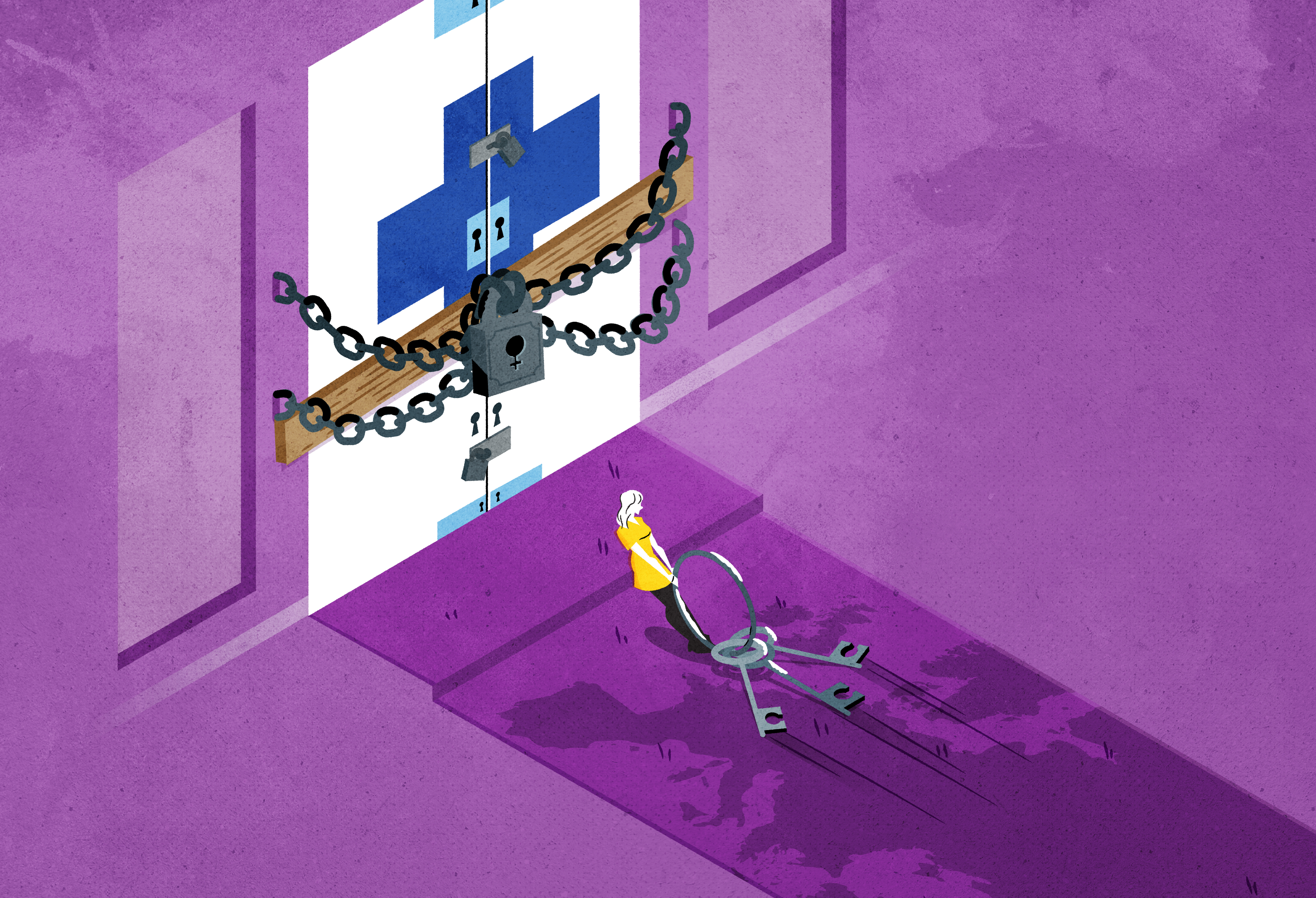
How Switzerland became liberal on abortion – without noticing

From 2027 Switzerland’s health insurers will cover the full cost of abortions. The change passed through parliament almost unnoticed. Where does the country now stand in an international comparison?
“Cost-containment package 2”, the name of the bundle of measures approved by parliament in March 2025, did not suggest increased costs for Swiss health insurers. Quite the opposite. And no one would have expected a shift in direction on the controversial issue of abortion to be among those measures.
There was no hint from the health commission, which had reviewed the hefty pile of new rules in advance. And so parliament waved the reform through in spring, apparently unaware of its wider implications – an unusual occurrence in Swiss politics.
The media and the public remained in the dark – until a journalist received a tip-off. It was only at the end of August, via the SonntagsZeitung, that Switzerland learnt that legal abortions would soon be fully covered by health insurance, probably from 2027 onwards.
Social policy implications
To understand the significance, it is important to understand that, until now, Swiss health insurers only fully covered pregnancy-related medical costs from the 13th week onwards – that is, without applying the deductible and co-pay.
Under the new rules, exemption from these co-payments will apply from the start of pregnancy. That includes abortion.
The change carries particular weight in terms of social policy. Many young women in financially difficult situations have insurance policies with high co-payments. And in Switzerland, abortion is relatively expensive – ranging from CHF500 ($625) to CHF3,000.
This put significant pressure on women with low incomes to carry a pregnancy to term. Their only option was often to turn to private aid organisations or, depending on their situation, to seek support from social welfare – exposing themselves at a particularly vulnerable moment.
Satisfaction on the left, dismay on the right
Switzerland’s political left highlighted the symbolic significance of the change. Mattea Meyer, co-president of the left-wing Social Democratic Party, called it a “feminist milestone”. A retrospective label – given that parliament had effectively approved this paradigm shift unknowingly.
The news triggered outrage in more conservative circles. Andreas Gafner, an evangelical parliamentarian from the ultra-conservative Christian party the Federal Democratic Union, told the SonntagsZeitung: “By the time I found out about these free abortions, it was already too late to table a motion and force a debate in the chamber.”
A reader of the Bote der Urschweiz newspaper wrote that he did not understand “why every person paying health insurance premiums must co-finance this horror”.
In Switzerland, abortion is legal up to the 12th week of pregnancy, provided the woman has had a consultation.
This so-called time-limit regulation has been in place since 2002. Before that, abortions were only permitted in special cases – for example, in cases of serious foetal abnormalities or danger to the mother’s health.
However, from the 1970s, courts increasingly recognised psychological grounds as valid. This paved the way for today’s more liberal practice.
Even some liberal voices expressed unease in online comments – particularly at the idea that high-income individuals who acted recklessly might also have their abortion costs covered. However, the centre-right Radical-Liberal Party did not intervene in parliament.
On the contrary: the president of the party’s women’s branch, Bettina Balmer – who is also a member of parliament and a paediatrician – told the SonntagsZeitung: “If you support the time-limit solution, then you must also include non-punishable abortion within the maternity framework.”
Liberal practice, low abortion rate
With a 12-week time limit, Switzerland’s law remains relatively conservative compared to the world’s most progressive countries. This is evident in the regularly updated global legal overview published by the Center for Reproductive RightsExternal link in New York.
Spain and France, for instance, allow abortions up to the 14th week, Denmark and Sweden up to the 18th, and New Zealand up to the 20th. Canada sets no federal legal limit at all – although in practice, late-term abortions are only carried out in specific cases.
In most progressive countries with well-developed public healthcare systems, the full cost of abortion is covered. This is the case in France, Denmark and Canada. In contrast, women in Germany and Austria generally must pay for the procedure themselves, with exceptions for low-income individuals.

More
Abortion in Europe: a right for some, a fight for millions of others
Switzerland has low abortion rates
Internationally, Switzerland ranks among the countries with the lowest abortion rates. In a major global studyExternal link covering data from 2015 to 2019, Switzerland – along with Singapore – registered the fewest, with just five abortions per 1,000 women per year.
Experts attribute this result to Switzerland’s mandatory sex education in schools, high purchasing power, and good access to contraception.
Recent figures from the Federal Statistical Office show that abortion rates have remained relatively stable in recent years, with especially low numbers among 15- to 19-year-olds.
Do you want to know more about social issues in Switzerland? Sign up to our thematic newsletter below:

More
Social issues reported by SWI swissinfo.ch
Edited by Balz Rigendinger. Adapted from German by Catherine Hickley/ts

In compliance with the JTI standards
More: SWI swissinfo.ch certified by the Journalism Trust Initiative





























You can find an overview of ongoing debates with our journalists here . Please join us!
If you want to start a conversation about a topic raised in this article or want to report factual errors, email us at english@swissinfo.ch.